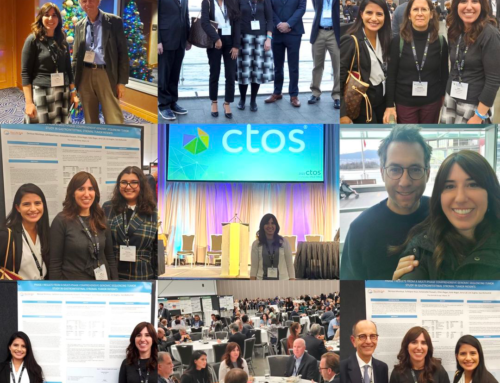Although it may seem obvious to patients and caregivers in the cancer community, depression is often a problem that is left untreated, put on the “back burner” to concentrate on the physical aspects of cancer treatment. The first and foremost thing that you need to know right now is that whatever you are feeling at this moment is completely normal. Do not feel ashamed or worried about your reaction to the news that you have cancer. Chances are that others have felt the very same way.
I was diagnosed with GIST in December 2016. I had two surgeries that could not be resected. My wildtype tumor is wrapped around a main artery. I was told by my oncologist that I probably only had nine months to live. I had scan after scan and whether the tumor was interpreted as growing depended on the which radiologist analyzed the scan. I thought about my impending death at least twice a week. If I was in a store purchasing a shirt or something, I would either think “I am only going to get a couple of months of wear out of the shirt,” or “Would it be a nice one to be buried in?” I was very confused about GIST because my oncologist knew very little about it.
I was having a tough time emotionally and asked my primary doctor for anti-anxiety medication. She suggested that I join a support group. I joined the LRG and met some very wonderful people that were kind and committed to helping me. I was overwhelmed by the compassion, commitment, kindness, and selflessness of my Chicago group leader Jim Hughes as well as Sara Rothschild and Laura Occhiuzzi. They set me straight and convinced me to get a GIST specialist and mutational testing.
I became educated about my challenge and began to advocate for myself and developed a better outlook on life. Once my concerns about my GIST were minimized, I began to fight the anxiety that went along with it. I realized that we are fighting GIST on three fronts, physically, emotionally, and in our soul. The following are principles that I have adapted on my road to being happy and fighting anxiety while living with GIST.
Intention
Being happy and having a pleasant state of mind has to be intentional. It has to be something that we set our minds and heart to do and go after. There can be no compromise for your joy. It must be given a proper place in your life. You must continuously remind yourself of your intent. Speak to your life concerning joy. Tell yourself that “I am going to be full of joy today. I will not allow anything disturb my joy.”
Mindfulness
We have to become aware of the impact of our thoughts and choose which ones will dwell within us and which will not. There are two sets of thoughts – one includes doubt, defeat, selfishness, ill will, and cruelty, and another that includes kindness, contentment, success, and compassion. We have a choice as to which will dwell within us. Choose positive thoughts. Dwelling on negativity has no positive impact on our situation.
Gratitude
We become better grounded as well as having a ‘macro’ view of our lives when we find things for which we are grateful. When one bad thing happens in our life, we tend to focus in on that one thing and forget about all of the good things that are happening in our lives. We have to learn to count our blessings.
Finding Joy
In difficult times, we have to learn how to “keep it going”. Apply steps that will help you. Repeat your intention to yourself, deal with the hard things but keep your mind on the good things for a longer period. Yes, I have cancer, but it does not define me. I have family, friends, a job, etc. Don’t let the difficult times overcome you, you overcome it with gratitude, intention and mindfulness. Pain is inevitable, suffering is optional.
Integrity
Be true to your inner self. Stand up and represent what is true. Create a motivation wall with people that positively impact your life. When you need encouragement to be true, look at the wall and think of what the people would tell you of the situation. My ‘motivation wall’ includes the LRG staff and many members of our group that I really adore.
Generosity
Being generous positively impacts the giver as well as the receiver. It is an expression of selfless love that does more for the receiver than the giver is ever aware of. It prevents us from making gods out of stuff and appreciate the what we have.
Learning to love yourself
Learn to accept your shortcomings and embrace the positives. We are all different and not made to be the same. Don’t compare yourself to others but to your progress. Work on acceptance of things that you cannot change and learn to love and appreciate the life that you have.
Dealing with others
I have learned to love people by not being judgmental, minding my own business, accepting people for who they are no matter if I agree with them or not. I have also learned to avoid drama and ‘drama queens.’ I have blocked people close to me on social media as well as my phone. I don’t have the landscape to deal with them or their negativity. My landscape is crowded with fighting GIST and living life joyfully.
Compassion
Caring for others and sacrificing makes your burden seem light. Compassion helps to keep you grounded and opens your heart to care for others.
Joy and happiness have to be awakened in you so that you can live life to the fullest. It must be intentional, practiced and not compromised. Love for yourself as well as others. Find joy, keep a song in your heart, smile and share smiles, learn to live freely. As fellow GISTer, John Abrams, has shared with me, “Don’t sweat the small stuff, and it is ALL small stuff.”
A cancer diagnosis has a significant impact on patients, caregivers and their families. It is normal for someone diagnosed with GIST to feel a whole host of emotions ranging from anger to fear, sadness and anxiety about the future. It is important, however, to be able to differentiate between the normal range of emotions and clinical symptoms of depression and anxiety, which require swift intervention.
If you or your loved one have any of these symptoms, notify a treatment professional or reach out to a support hotline such as the National Suicide Prevention Lifeline: 1-800-273-TALK (1-800-273-8255).
- Suicidal thoughts or thoughts of hurting yourself
- Lack of interest in normal activities
- Unable to sleep or sleeping excessively
- Strong emotional states that interfere with daily activities
- Severe fatigue or loss of energy
- Mental confusion or a diminished ability to think or concentrate




